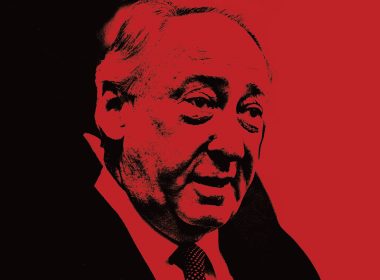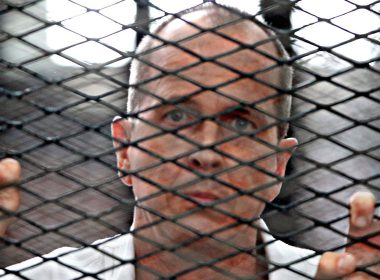For members of a profession in which ethical obligations are paramount, the Banking Royal Commission has brought up some tough questions, especially for in-house legal counsel.
“I’m a lawyer. What we think isn’t supposed to matter.”
So says Jay Brazeau’s character Bobby in Double Jeopardy. Lately, you’d be forgiven for thinking these words were uttered by an in-house lawyer in the banking, superannuation, or financial services industry.
Last year’s Banking Royal Commission (the Commission), whose damning report was released last month, did wonders for public perceptions of the bar and judiciary – Commissioner Kenneth Hayne and Senior Counsel Assisting the Commission Rowena Orr became quasi-legal rock stars – but some would say it didn’t shower the in-house legal sector in glory.
From AMP’s fees-for-no-service to ClearView’s legally-dubious selling methods and NAB executives keeping remediation amounts from the regulator until after reporting season, some of the conduct that got past in-house teams was astounding. While plenty of positive in-house counsel behaviour was referred to in the report – such as ClearView’s in-house team calling out misleading online advertising – Hayne didn’t hide his disappointment in those members of the profession who could have behaved differently.
We need to check with ourselves – are we being too open to finding ambiguities or loopholes in the law?
JUSTIN MOSES
 In many of the report’s case studies, it seems that – much like Bobby – whatever legal or ethical concerns an in-house lawyer may have had didn’t seem to matter terribly when it came to influencing their companies’ business decisions. Other case studies highlighted far more serious conduct.
In many of the report’s case studies, it seems that – much like Bobby – whatever legal or ethical concerns an in-house lawyer may have had didn’t seem to matter terribly when it came to influencing their companies’ business decisions. Other case studies highlighted far more serious conduct.
As in-house teams continue to expand (the in-house sector is the fastest growing in Australia), the Commission highlighted the tensions between a lawyer’s ethical obligations and his or her loyalties to the business by which they are employed.
So, what can the legal profession learn from this?
Serving two masters
The dilemmas in-house counsel face have been around for as long as the profession itself, especially at a senior level. Maintaining a legal responsibility to the court while also being a member of an organisation’s executive team can create fertile ground for conflict and ethical issues. Indeed, the Commission showed the extent to which some company executives are willing to go to push a business agenda beyond both ethical and even legal boundaries.
It’s unsurprising, then, that as Searl Street Consulting’s Anna Hinder observes, in-house teams “know their obligations but become captured by employers”. Hinder, an organisational performance consultant, describes how lawyers can become caught up in the business interests of the company, losing sight of their obligations to the community and court.
When this does happen, it isn’t necessarily wilful. And, as Hayne wrote in the report, in-house counsel are often isolated from the ethical guidance the rest of the profession takes for granted.
UNSW Law’s Justine Rogers, who specialises in legal ethics and changes to the legal profession, agrees. “Courtrooms and law firms provide really important ethical cues and checks for lawyers, and in-house counsel are removed from both,” she says.
ClearView’s General Counsel and company secretary, Elizabeth Briggs, backs this up.
“I’ve got five lawyers here in ClearView,” she says. “That’s it. I’ve got no one else to bounce off … how do you navigate that when you feel like, at times, you’re in a bit of a vacuum?”
Industry leaders say maintaining one’s ethical obligations as a lawyer is not irreconcilable with in-house work. But duties to the law may need to be prioritised when an in-house counsel is giving advice.
“One of the key takeaways [from the Commission] is that [in-house lawyers] need to look beyond the letter of the law itself,” says lexvoco special counsel and former senior member of Westpac’s in-house legal team Justin Moses.
“We need to look at the spirit of the law, and we need to check with ourselves – are we being too open to finding ambiguities or loopholes in the law?”
Even for the vast majority of in-house counsel who do the right thing, sometimes it won’t make too much difference – and that means they can face a difficult choice.
“I have heard of situations where lawyers have felt it was untenable for them to continue being the corporate lawyer at a particular organisation, because they just didn’t see in line with the corporation’s view on risk or regulation, or whatever it was,” Moses says.
“They didn’t want to find themselves in a situation where they were ultimately choosing between hanging onto their job or hanging onto their practising certificate.”
It’s lonely at the top
There is no doubt General Counsels are under significant pressure. From a legal standpoint, the buck stops with them – but they’re often also on senior leadership teams or boards of the same organisations they’re expected to provide legal checks on and advice to.
“I think that’s probably the hardest part,” says ClearView’s Briggs. “We do want to be involved and we want to have a seat at that table and understand business strategy, but we’re wearing a very specific hat and we owe quite important obligations to the business in that regard.
“There are boundaries on that role and you need to be aware of that, because you can get pulled into conversations where you’re really conflicted. You just have to be quite alive to that as conversations happen, particularly around business strategy and around the direction the executive want to take things.”
With the recent growth of in-house teams, General Counsels are becoming more powerful. This can pose problems when they need legal guidance themselves.
“[General Ccounsels’] ethics check would or might normally come from external counsel, but now that there’s a lot more power in the hands of the General Counsel, law firms can be made to feel like they will shop around for other counsel if they don’t get the advice they want to give to their own management,” UNSW’s Rogers says.
“And the General Counsels often come from those [external] firms, which means there’s a bad combination of competitiveness and solidarity going on. That blend creates risks of blind spots and incentives against ethical conduct.”
If we’re actually following the law, we’re going to have happier customers and that’s the livelihood of our business.
ELIZABETH BRIGGS
 It takes two to tango
It takes two to tango
While ethical obligations held by lawyers ultimately belong to an individual, not a business, in-house counsel may find it easier to adhere to these obligations with better support from their employers.
“Companies need to consider … why they have in-house counsel if they don’t want to follow their legal advice,” says Rogers.
“If they want [an external] consultant then say that, but don’t take all the benefits in privilege, legal advice, and compliance that come with having an in-house team.”
For businesses that commit to in-house teams, Rogers believes many need to better understand the role lawyers play, and the overarching obligations that come with signing the Supreme Court roll.
“In-house lawyers need to go into businesses and say, ‘I’m a lawyer, I’m a distinct part of the infrastructure of this company with certain special duties that need to be supported in the rest of the company’s systems,” Rogers says.
This extends to the top, too.
“Executives need to know just how much a General Counsel stands to lose if they lose their practising certificate,” says Hinder. “After all, the CEO or the CFO don’t have one. It’s only the GC who stands to lose it.”
Perhaps, adds Briggs, businesses need to better appreciate that independent advice from their in-house counsel could lead to better business outcomes.
“If we’re actually following the law, we’re going to have happier customers and that’s the livelihood of our business,” she says. “That’s what we set out to do – to serve the people who buy our products.”
Moses says that while legal advice may not offer the same type of value to a company as revenue generation, it is still in its best interests.
“If I save the organisation from a $300 million regulatory fine, or from a $500 million loss on a class action to a bunch of shareholders, then in my own way I’ve contributed just as valuably.”
Let’s start at the very beginning
While it may be too late to rectify some of the problems unravelled by the Commission, better education around ethics early on in a lawyers’ career could help the profession learn from it.
Rogers, who designed the ethics course at UNSW, “Lawyers, Ethics and Justice”, says law schools could do more to recognise the growth of in-house counsel and the particular pressures of that role.
Her students face one task, for example, where they are put in the position of an in-house lawyer who has been told by their boss that things are different now that they’re in-house. The boss tells them that they don’t like their advice and it has gone beyond what’s asked of them. The students then work out strategies to employ, consider who to turn to, and mentor each other on their strategies.
“The aim is to give them the chance to build confidence in these sorts of conversations so young lawyers aren’t just hoping they have the skills in the moment,” Rogers says.
Then there’s education in the workplace. Rogers has found that when lawyers go from private practice to in-house, they experience a “re-education”, as they have to gain confidence in explaining to a non-lawyer what being a lawyer entails. Briggs sees issues with lawyers being untrained in this area.
“There is a real gap with soft skills and with understanding how to communicate with non-lawyers – and how to influence and how to be persuasive and how to make your voice heard in a room full of people who might not necessarily want to know what you’re speaking about,” she says.
Heeding the lessons
While the Commission has shone a light on some in-house counsel’s conduct, it may be dimmed if the profession isn’t willing to heed its lessons.
In analyses of the Commission’s final report released by the major firms after its release, none mentioned the implications for the legal profession. The banking and financial services industries were also loathe to self-reflect until they were forced to.
But, says Hinder, the in-house profession is still relatively young, so there is still opportunity to shape how it operates.
“The biggest questions and problems are always going to come from the newest parts of the profession,” she says. “That’s where ethical questions arise.”




